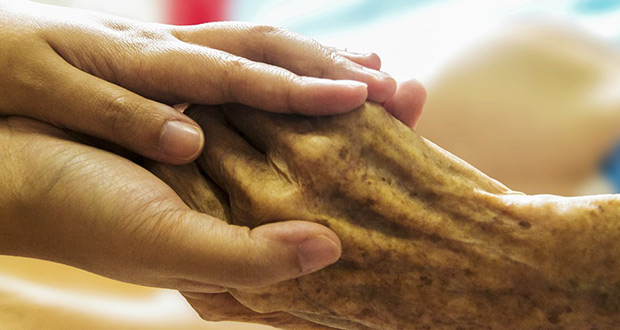Care Sector Relies On Overseas Recruitment
 Overseas recruitment is vital to maintain appropriate staffing levels in Scotland’s care home sector, a leading Scottish care provider said today.
Overseas recruitment is vital to maintain appropriate staffing levels in Scotland’s care home sector, a leading Scottish care provider said today.
Meallmore, which operates 23 care homes across Scotland, estimates about five per cent of its nursing staff are from overseas. Recruiting from the EU and beyond is now a regular management process and is becoming more and more essential as the result of a worldwide shortage of nurses.
Meallmore’s experience is backed by industry body Scottish Care which reports that there is substantial evidence of a nursing shortage which will continue unless another avenue of supply opens. It identified a year on year increase in the number of organisations struggling to fill nursing positions.
Dr Donald Macaskill, CEO of Scottish Care, said: “With between 6-8% of staff employed in care homes coming from the EEA and a 31% vacancy rate for nurses, not being able to attract staff has a direct impact on the ability of providers to staff care homes. The risk is that some of our old and frail citizens will be delayed even longer in hospitals because care homes will not be available.
“Scottish Care believes that we will continue to require skilled and dedicated staff from Europe and elsewhere to come to our communities to work alongside us in order to care. This can only be achieved by a migration system which is flexible and responsive to the needs of our communities and the current demand for nurses amongst others.”
In 2017, its report says, 91% of care providers surveyed indicated that they were having difficulties filling nurse vacancies (up from 66% in 2015), with the most common reason for this stated as an insufficient supply of nurses. The average time to fill a nurse vacancy was given as 8-12 months, but certain providers admitted they had been trying unsuccessfully to fill nurse posts for upwards of two years. As a result, nearly 42% of providers now recruit from the European Union, with more than 26% recruiting from out with the EU.
Mary Preston, Operations Director from Meallmore, said: “Without looking to overseas applicants, the sector would face certain collapse. Our residents need and expect continuity of care and it is a constant task to ensure that there are enough trained and capable applicants coming through the system to work alongside our exceptional and loyal nursing teams.
“There are just not enough nurses in Scotland and whilst we always endeavour to recruit locally we also invest heavily in attracting applicants from the EU and further afield, then supporting them to settle here and integrate into the local community.”
The Scottish Government is running a campaign called ‘We Are Scotland’, to highlight the importance of migration across all areas of Scottish life, particularly to economic prospects and demographic sustainability. By 2041, the number of over 75s will increase by 79% but the working age population will only increase by 1%.
According to the National Records for Scotland, Scotland’s population growth is dependent on migration. Population growth is a key driver of economic growth, but deaths are projected to outnumber births every year going forward, so continued inward migration is essential to grow Scotland’s population.
Meallmore is just one of many companies who agree that migration is a key part of being able to deliver the best service it can.
Recruits from outside of the UK have had a number of additional, positive effects for Meallmore. Tracy Barker, Area Manager at Meallmore, said: “It’s important to have a mix of skills, background and experience to meet the needs of our residents and to ensure capacity within our teams.
“We’ve found that the skill set and variety of experience we see across our nursing population ensures our residents experience high levels of frail elderly and dementia care that focuses on their own needs; not having English as a first language can be a challenge for some nurses, however we have found the majority really develop in this area with support from colleagues and our staff teams are even more inclusive.
“This method of recruitment is not a quick fix – getting from the point of recruitment to being a nurse generally takes in excess of 12 months. There is no doubt, however, that it is a necessity and needs to be recognised as a major challenge for the care home sector.”





